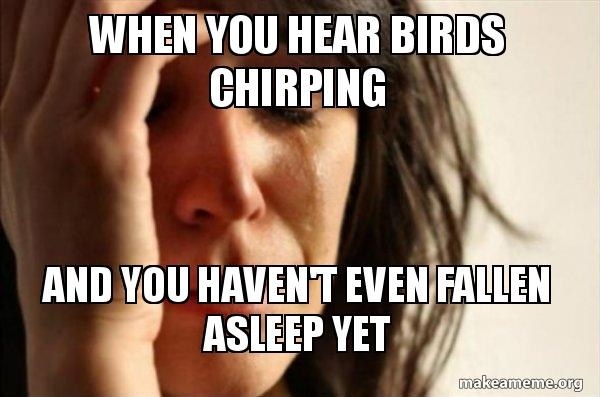Many people believe that staying up late and sleeping the day away is the norm. With people binge watching shows till late at night, or pulling all nighters for exams, many late night sleepers think that it’s perfectly fine to practically stay up until the sun rises. But, if you find yourself unable to go to sleep early, and that you are forcing yourself to go to bed when you're not tired, this could actually be a sign of having a sleep problem called Delayed Sleep Phase Disorder (DSPD).

What is it?
DSPD is a sleep disorder that causes people to “feel wide awake, energetic and motivated until late in the night”. Those with this disorder are unable to go to bed early, (typically anytime before 2am - 6am ) and their sleeping schedule isn’t flexible. Often they are unable to go to sleep no matter how tired they feel. This can be especially awful if they need to wake up early for school or work. This disorder is caused by a shift in the circadian rhythm,your internal body clock, which moves your sleep cycle ahead by a couple of hours.

The signs
-inability to fall asleep before 2am
-inflexible sleep schedule
-you can’t go to sleep early, even if you're tired
-you're a heavy sleeper
-you often sleeps through alarm clocks
-you're a teen or young adult (they are most commonly affected)

Don't Panic Yet
Even if this disorder seems to fit the bill, there’s many other things to consider. One of which being how in today’s society, technology is becoming more and more prominent. This is important because studies have shown that “The blue light emitted by screens on cell phones, computers, tablets, and televisions restrain the production of melatonin, the hormone that controls your sleep/wake cycle or circadian rhythm”. Also, even if you do end up having DSPD, you will most likely grow out of it. While it may be common in adolescents and young adults, only around “1 in 600” adults actually have it. This means that there is a good chance that this disorder won’t be permanent.

What you can do in the meantime.
If you're still worried, try these tips:
-turn off all technology at least one hour before bedtime
-Keep your phone on silent, or better yet, turn it off completely
-read before bed
-make yourself a glass of warm milk
-avoid drinking caffeine 6 hours before going under the covers
-exercise during the daytime
-meditate to relieve stress


